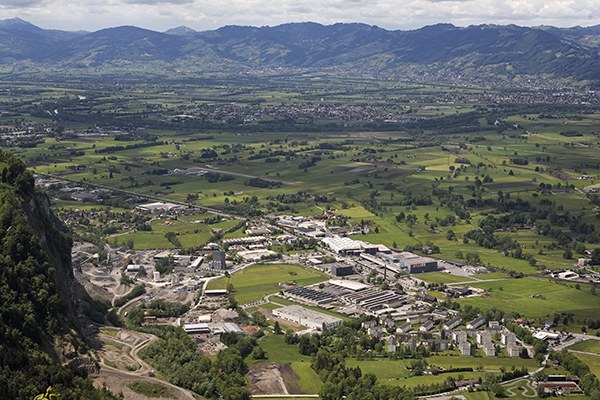News
Underestimated soil
Links4Soils is one of the few projects advocating for the development of an Alpine-wide and cross-sector management in the area of soil conservation. Partners from throughout the Alpine region are creating a transnational network, sharing knowledge, exploiting synergies and thus aiming to put the protection of soil in the Alps on a wider footing. Both CIPRA Austria and the Permanent Secretariat of the Alpine Convention are participating in the Alpine Space Project as observers.
An Alpine-wide soil conservation network of this type would facilitate the implementation of the soil conservation protocol of the Alpine Convention which, according to Links4Soils, is so far deficient in its application and implementation. The main culprits are the patchy data situation, the knowledge gap as regards sustainable conservation of ecosystem services, and the lack of workable management methods. This situation is also being addressed by the Eusalp Action Group 6 which, under the direction of the Permanent Secretariat of the Alpine Convention, is focussing on “Spatial Development and Soil Conservation”, including the difficulties of Alpine-wide soil conservation.
The challenge of EU legislation
As an international treaty in this area, the Soil Conservation Protocol is unique in Europe. At EU level there is no specific, binding legal framework to protect soils from the greatest dangers such as climate change, changes in land use, soil sealing, contamination or erosion. In 2006 the European Commission presented the first drafts for an EU-wide soil framework directive; then, in 2014, it withdrew them all. In response to this decision, over 300 representatives from civil society, research and agriculture came together to form the European citizens’ initiative People4Soil, organising a year-long petition action that ended on 12 September 2017. It was however not possible to obtain the million signatures required to prompt the reopening of the discussion on the soil framework directive in the European Commission. Less than four weeks later, the Commission filed and shelved the initiative.
Damiano di Simine, representative of the civil initiative and head of Legambiente Lombardia, criticises the low priority given to soil conservation in the EU: “The problem is that the European Commission does not define soil as common property”. Air and water move across borders, are therefore seen as a common issue for all Member States. Soil, however, is regarded as immobile and thus the responsibility of individual states. “This disregards the many services that soil provides us all with, whether by supplying us with food or by maintaining biodiversity”, says Di Simine.
Sources and further information:
www.alpine-space.eu/proje+cts/links4soils/en/home , www.alpine-space.eu/projects/links4soils/downloads/2016_0721-links4soils.2page.projectsummary.pdf , www.alpconv.org/en/convention/protocols/Documents/SoilProtocolEN.pdf , www.alpine-region.eu/action-group-6 , www.alpconv.org/en/activities/EUSALP-AG6/default.html , www.people4soil.eu , http://ec.europa.eu/citizens-initiative/public/initiatives/obsolete/details/2016/000002/en , www.boden-des-jahres.de (de)


